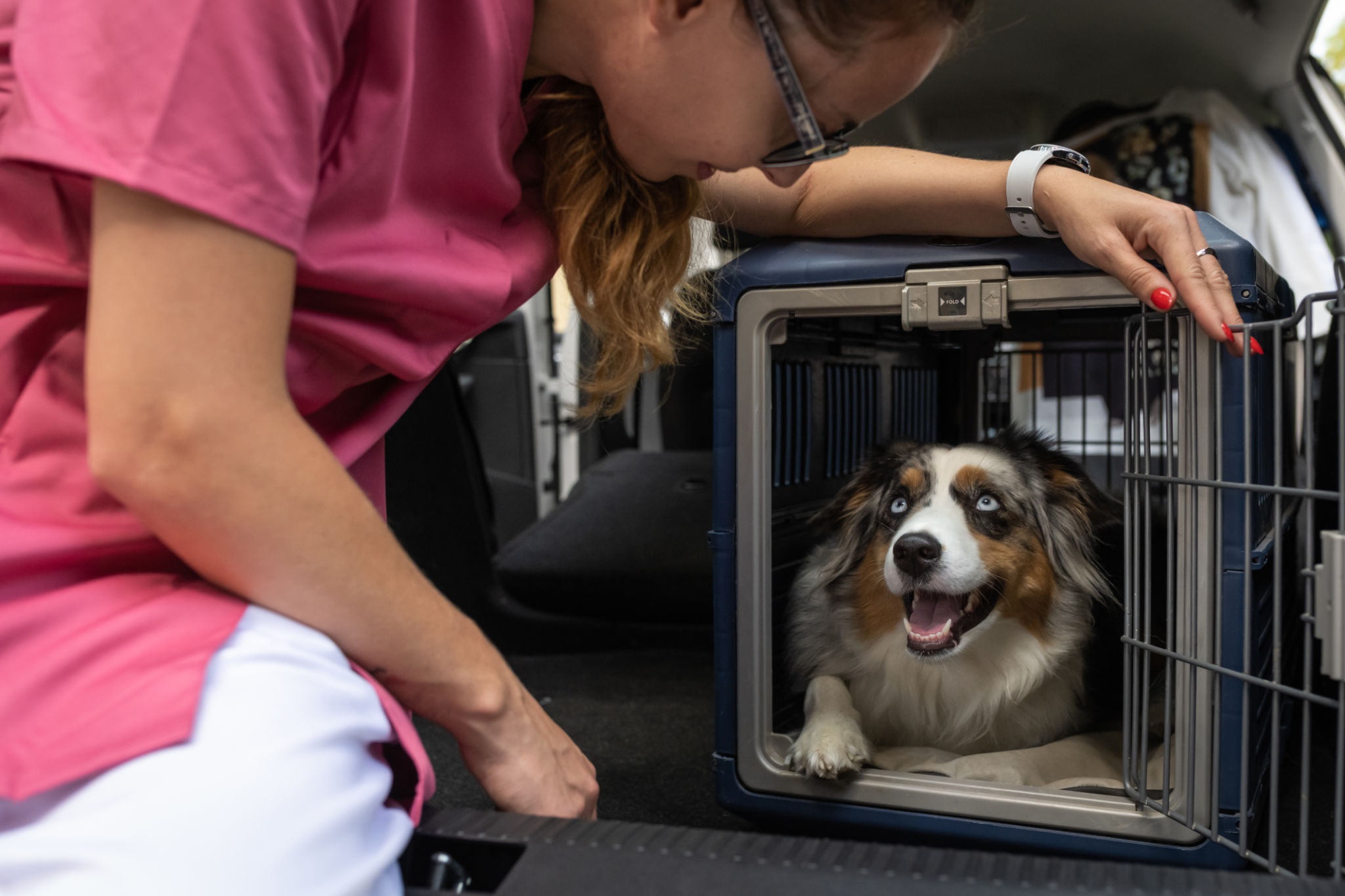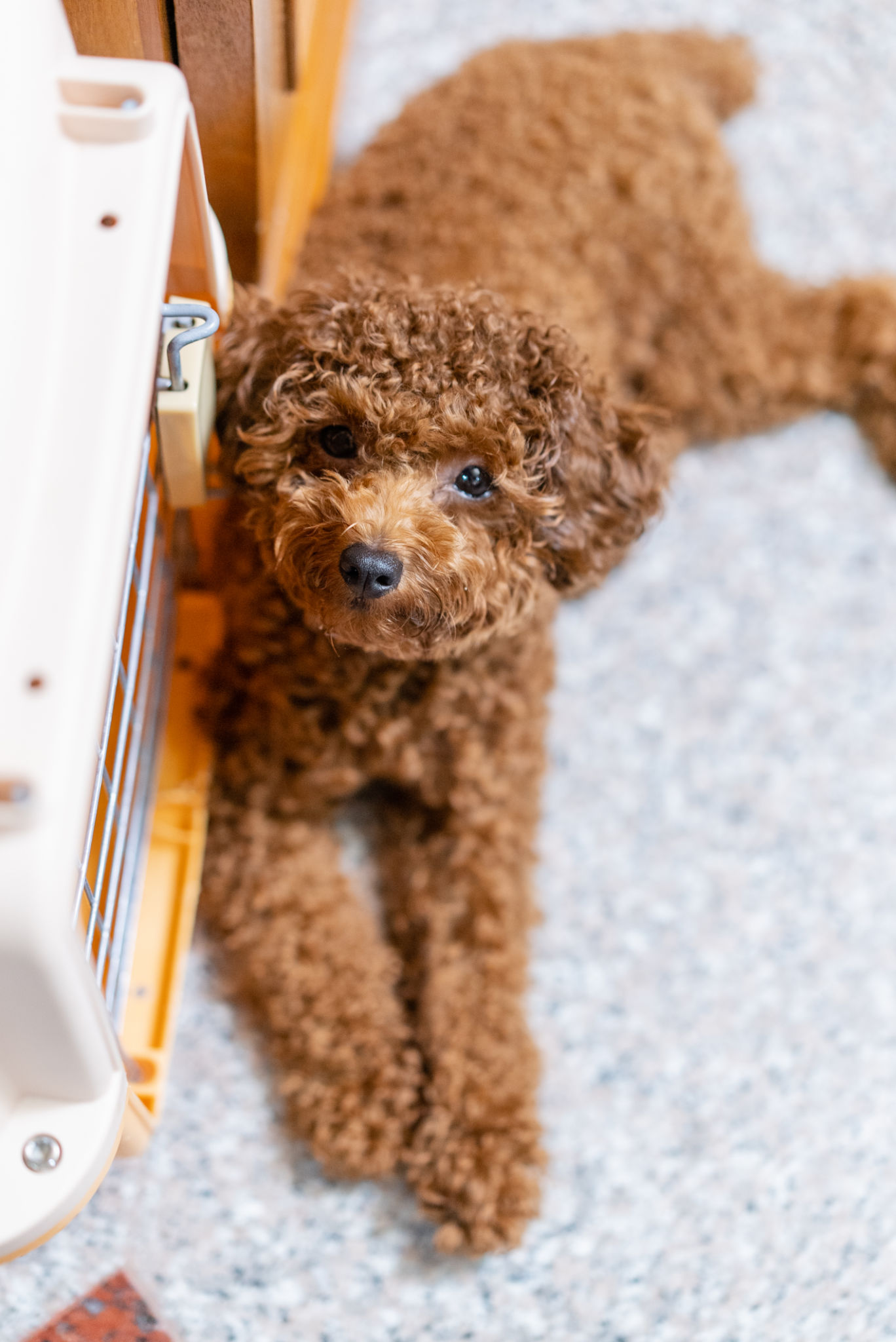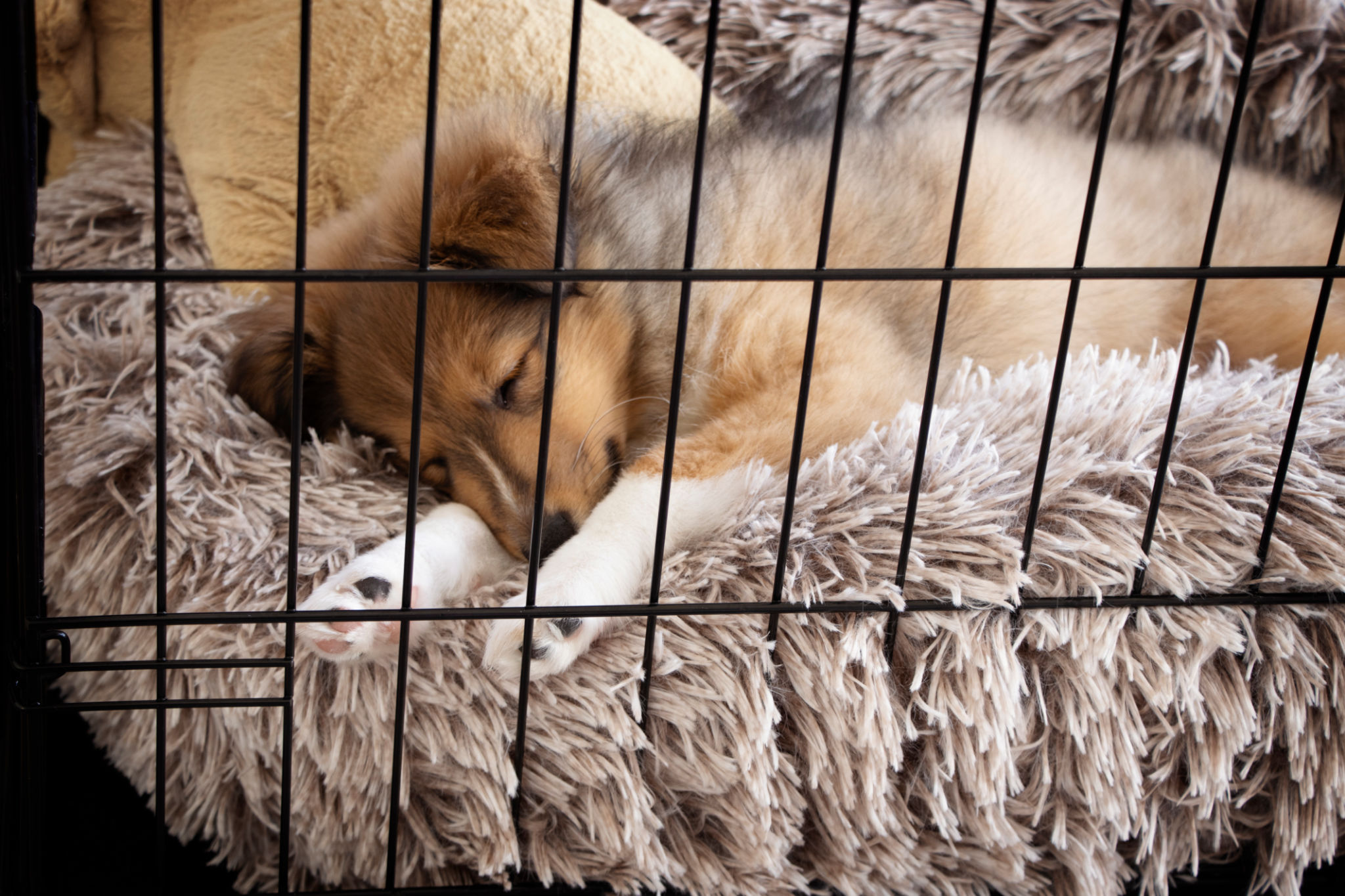Crate Training Adult Dog At Night
DR
Crate Training Adult Dog At Night
Crate training is often associated with puppies, but it can be just as beneficial for adult dogs. Whether you're introducing a crate to your furry friend for the first time or reinforcing the habit, night-time crate training can be a valuable tool. In this guide, we'll explore the reasons for crate training, how to introduce the crate to an adult dog, and answer some common questions about night-time crate usage.
Why Use a Crate for Your Adult Dog?

Benefits of Crate Training
Crate training offers numerous benefits for both you and your dog. It provides a safe, comfortable space for your dog to retreat to, which can be especially useful at night. It also helps with house training, prevents destructive behavior, and can ease anxiety by providing a familiar space when traveling or during stressful times.
Common Concerns
Many dog owners wonder, "Is it okay to crate a dog at night?" The short answer is yes, as long as the crate is used correctly. Crates should never be used as a form of punishment. Instead, they should be seen as a positive, secure space for your dog to rest.
How to Crate Train an Older Dog

Crate training an adult dog at night requires patience and consistency. Here's a step-by-step guide to help you get started.
Choosing the Right Crate
Before you begin training, ensure you have the appropriate crate for your dog. It should be large enough for your dog to stand, turn around, and lie down comfortably, but not so large that they can use one end as a bathroom.
Introducing the Crate
Make It Inviting: Place the crate in a quiet, comfortable area of your home. Add a soft bed or blanket and some of your dog's favorite toys.
Positive Associations: Encourage your dog to explore the crate by using treats and praise. Start by feeding them near the crate, then gradually move their food inside the crate.
Short Sessions: Initially, let your dog spend short periods in the crate while you're home. Gradually increase the time as they become more comfortable.
Crate Training at Night
Once your dog is comfortable with the crate, you can start using it at night. Follow these tips to make the transition smoother:
- Establish a Routine: Dogs thrive on routine. Set a consistent bedtime and create a calming pre-crate routine, such as a short walk or some quiet time together.
- Calm Environment: Ensure the sleeping area is calm and quiet. Avoid placing the crate in a busy part of the house.
- Encourage Relaxation: Use a soft, comforting tone when guiding your dog into the crate at night. Offering a treat or chew toy can make the experience more enjoyable.
- Gradual Adjustment: If your dog is anxious, start by placing the crate in your bedroom so they feel close to you. Gradually move it to the desired location as they become more comfortable.
Monitoring Behavior
Pay attention to your dog's behavior during the night. Some dogs may whine or bark initially, but it's important not to let them out while they're making noise, as this can reinforce the behavior. Wait for a moment of silence before opening the crate.
If your dog consistently shows signs of distress, such as excessive barking, drooling, or attempting to escape, it may be worth consulting a professional trainer for additional support.
Common Questions About Night-Time Crate Training

Should I Crate My Dog at Night?
Crating your dog at night can provide them with a sense of security and help establish a routine. It's a personal choice, but many dogs benefit from having a designated sleeping area.
What If My Dog Won't Stop Barking?
If your dog is barking in the crate, it's important to determine the cause. They may need to go outside, or they might be experiencing anxiety. Make sure they've had enough exercise during the day and consider a calming supplement or pheromone diffuser if anxiety is a concern.
Keywords:
dog sleeping crate, how to crate train an older dog, should i put my dog in a crate at night, crate training adult dog at night, should dog go in crate at night, is it ok to crate a dog at night, should i crate my dog at night, crate training adult dog, crate training an older puppy, how to crate train a 1 year old dog
